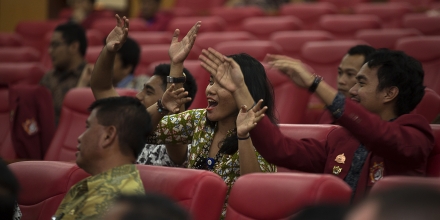Targeted education vouchers for higher education and academic performance: evidence from Indonesia

Event details
ACDE Seminar
Date & time
Venue
Speaker
Contacts
The enrolment rate in higher education is relatively low in Indonesia compared with neighbouring countries. In 2010 the government introduced a targeted education voucher program, Bidikmisi, to increase access to higher education and improve academic performance. The program covers tuition costs and living allowance fully for students coming from disadvantaged socioeconomic backgrounds. This paper investigates the impact of the program on student academic performance in university. Using administrative data collected from a large public university in Java, this study applies matching methods to find the causal effect of the program on students’ GPA and length of study. The design of the matching methods is based on in-depth interviews with university administrators and students about program allocation and implementation. The study finds that receiving the voucher has little effect on academic performance. Also, because university student capacity is not increased, the voucher is not likely to broaden access to higher education, but more likely to change the composition of students.
Updated: 2 September 2024/Responsible Officer: Crawford Engagement/Page Contact: CAP Web Team






